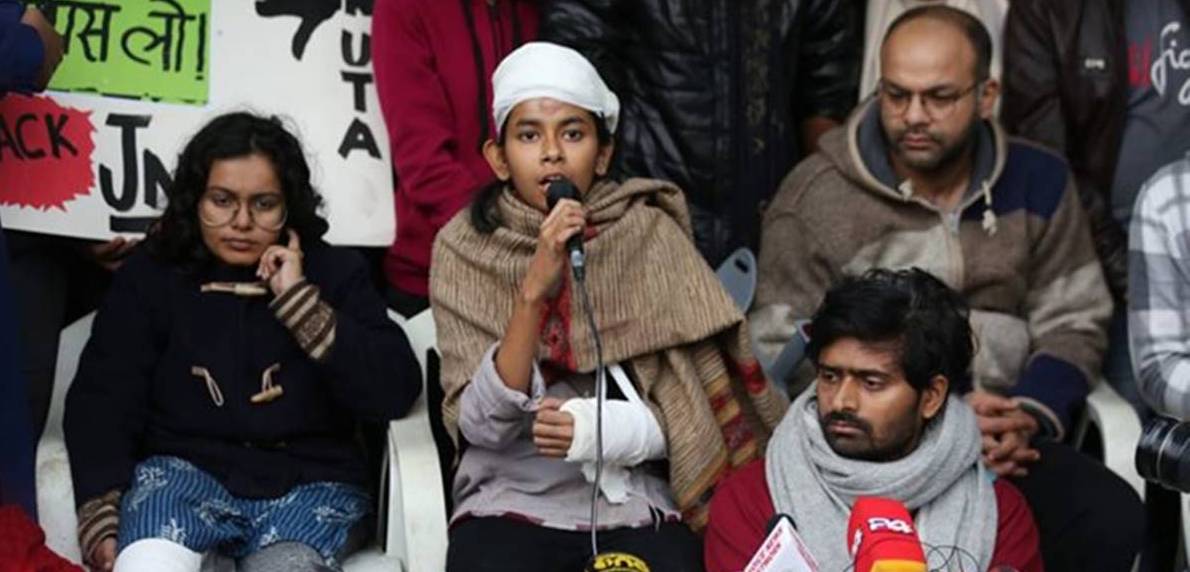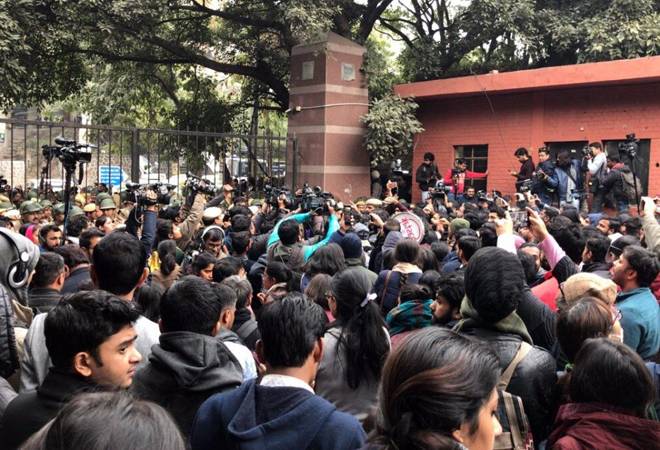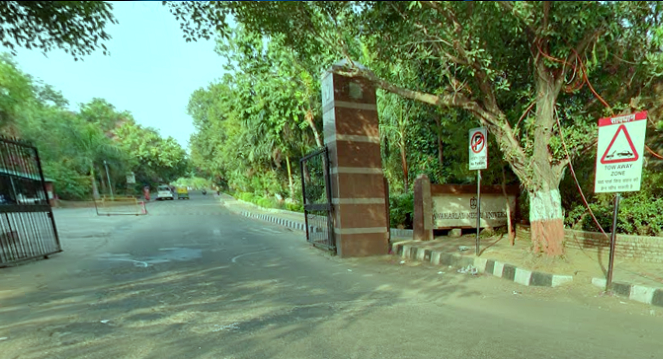MATTER OF CONCERN
In this brief piece, the author has taken us to a new domain of understanding the politics of hatred and surveillance machineries.
Avijit Pathak is a Professor of Sociology at JNU, New Delhi.
 Umar Khalid
Umar Khalid
[dropcap]The inevitable [/dropcap]seems to have happened. Someone–possibly a fanatic, possibly a hired agent of a gang – tried to kill Umar Khalid. I call it inevitable because the circumstances we live in are essentially preparing the ground for this sort of violence-the notorious act of finishing the dissenting voice. Why is it so? Before I make my arguments, let me confess something. Even though I teach at JNU I have not got an opportunity to interact with him. Well, I am deeply aware of his scholarship, his political affiliation, and his consistent reflection on the prevailing state of affairs. No, I do not agree with all that he says or writes. And I am sure he too does not approve of my way of living -my relative ‘invisibility’ in the political realm, or my philosophic affinity with what someone regarded as ‘neo-Gandhian romanticism’.
However, these differences, I believe, are normal and healthy. We learn to realize that no ideology is sacrosanct; and it is good to expand on’s horizon. And hence, even though we live in two different worlds, I respect him; I respect his intellectual zeal, his command over historiography, his courage, and his political commitment.
There are three reasons why, I believe, his life is in danger. First, the ruling establishment, it seems, suspects three crucial aspects of his being:
(a) He is a dissenter; unlike the ‘normal’ career-oriented/self-centric young men, he thinks; he has a worldview, and he questions;
(b) He is from JNU-a public university that the establishment (with the growing marketization of private universities, and the denial of critical pedagogy in the name of mere ‘technical skills’) seems determined to finish; it is a university that has already been stigmatized as ‘anti-national’– a site of ‘terrorists and urban Maoists’; and
(c) He is a Muslim–the condemned ‘other’ of the mass psychology of majoritarian politics. No wonder, even the mighty establishment finds somewhat uneasy with this young historian. Is it because power makes one perpetually insecure?
Second, something has gone terribly wrong in this media-induced world. We know the decadent state of Indian journalism-particularly, when we look at some television channels that speak of the ‘times’, and are concerned about the ‘republic’.
Furthermore, the toxic character of the social media has added to the act of poisoning the mind. This propaganda machinery has done terrible damage to our collective consciousness. When debate is replaced by noise, or when any critical voice is condemned as ‘anti-national’ we create potential murderers–the lumpen force devoid of critical thinking and self-reflexivity, and governed by gross impulses and instincts.
From lynching to cow vigilantism-we see the assertion of the lumpen politics. Don’ think. Don’t reflect. Believe in what superficially smart and culturally impoverished television anchors are saying; accept everything that the hysteric ‘protectors’ of the nation are talking about; and if, necessary, kill those who are ‘insulting’ the ‘Bharat Mata’!
Surveillance is normalized; CCTV camera is everywhere. Yet, it happened in the heart of the national capital. Does it speak something about surveillance and violence? The state legitimates the existence of the technologies of surveillance by arguing that we will be safe and secure. It is high time we questioned this celebration of surveillance machineries. A machine, let us accept, cannot eradicate the roots of violence and criminality. The visual identification of the criminal does not necessarily assure the abolition of crminality. In the age of ‘suicide bombers’ or in the age of hatred, nothing works. No wonder, it could happen just near the Constitution Club. The psychology of hatred is so overwhelmingly powerful that the man who tried to kill Umar doesn’t bother about the gaze of the CCTV camera.
[irp]
As a society if we do not succeed in creating an environment of trust, care and politico-ethical wisdom( we may differ; yet, we meet, talk, negotiate), the likes of Umar Khalid will continue to be attacked even amid innumerable CCTV cameras. As a teacher what can I offer to him at this moment of turmoil except my prayers?












